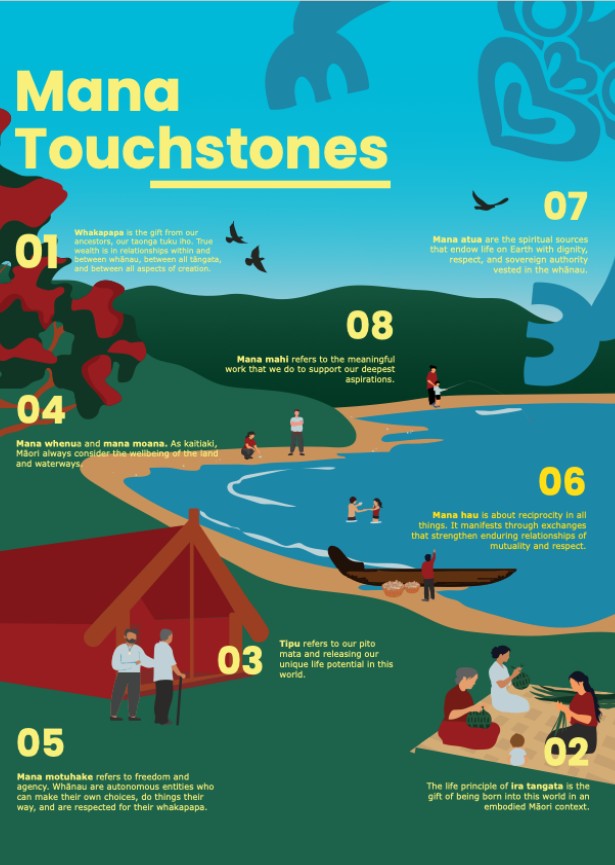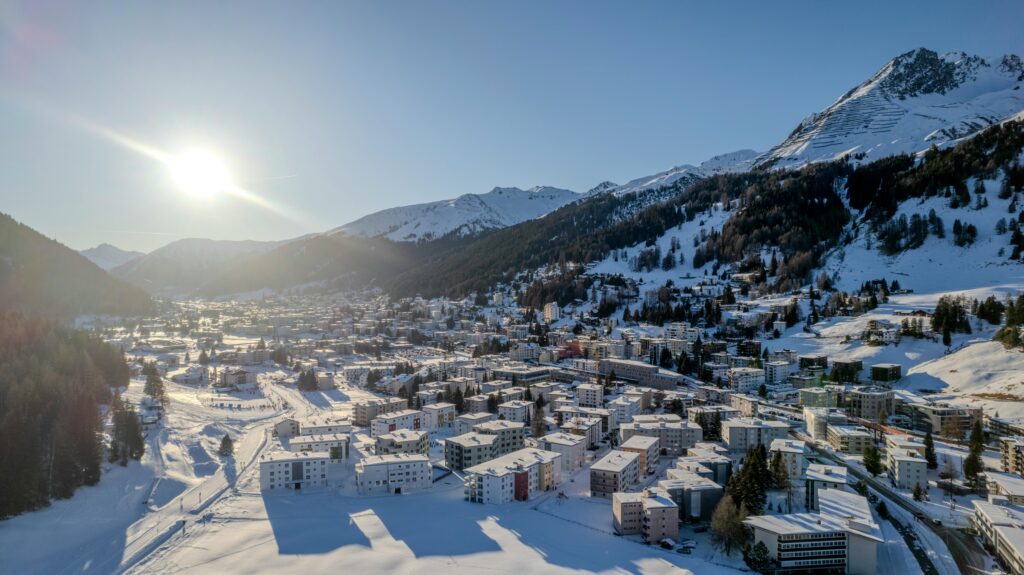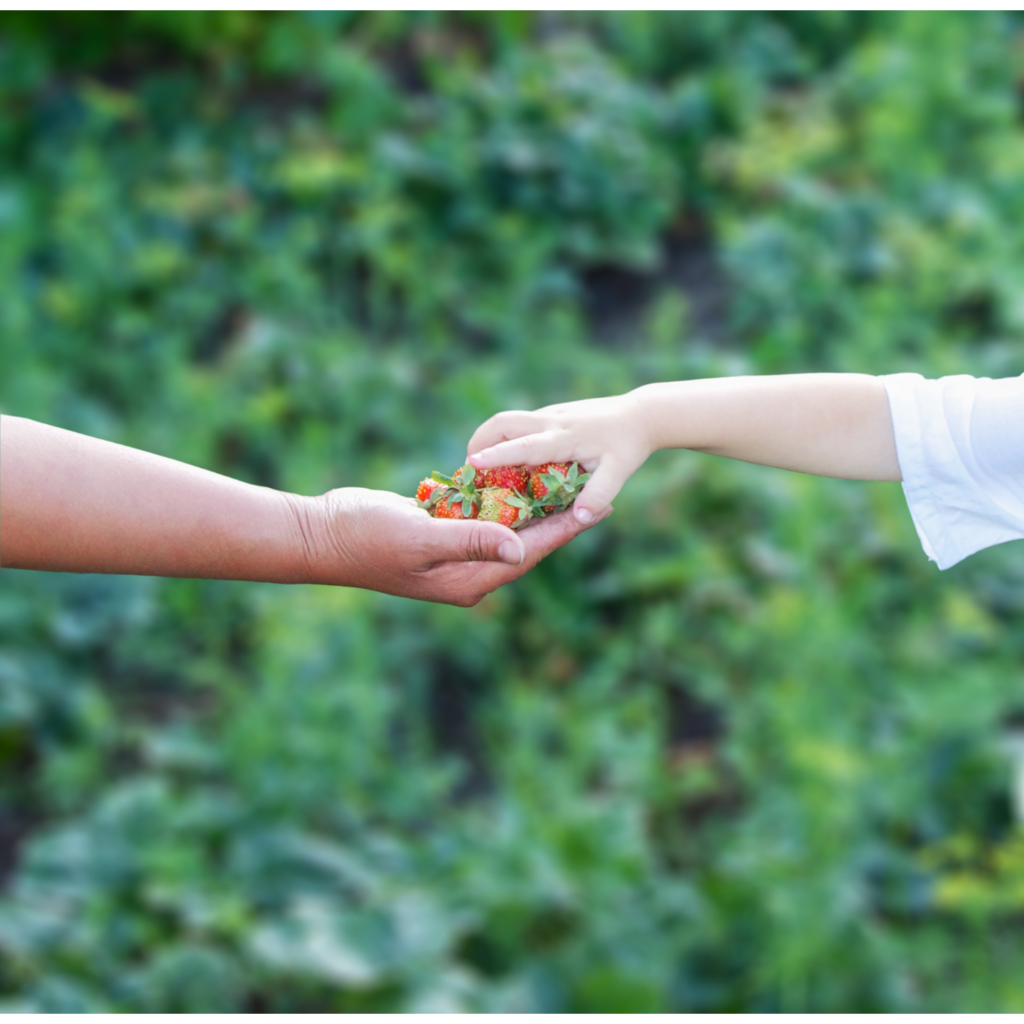A new book and dictionary spotlight how Māori knowledge and values can be catalysts for economic transformation.
In Aotearoa New Zealand, a transformation is underway, far beyond the confines of institutions and policy papers. As global systems strain under the weight of climate collapse, inequality, and spiritual disconnection, many are looking to wellbeing economies for a better path forward. But for Māori and other Indigenous peoples, this is not a new path. It is an old one – enduring, adaptive, and flourishing. Some of us call it the “KNEW economy” – not new, but known.
Māori wellbeing economies are guided by deep genealogical and spiritual relationships among people, land, ancestors and descendants, and the unseen dimensions of life. At the heart lies whānau: the extended family network. Not the individual. Not the market. Whānau are relational, sovereign units where resilience is cultivated, wealth is a collective orientation, and futures are envisioned.
Māori economies are driven by values like reciprocity, kaitiakitanga (stewardship), mana (spiritual authority), and hau (life essence in gifting relationships). These are not abstract ideals, but rather daily realities. They shape how we work, relate, produce, redistribute, and care.
Towards Māori wellbeing economies
Drawing on over three years of research, our research team from four New Zealand universities published Towards Māori Wellbeing Economies – an open-access book weaving Indigenous philosophy and lived experience. The book also contains deep theory tracing Māori economic trajectories and linking these to global wellbeing models such as Doughnut Economics, Regenerative Economies, and Community Wealth Building – models that Earth4All draws upon in its vision for economic transformation. Our findings reveal strong convergence: shared values of interdependence, reciprocity, balance and place-based care. Yet Māori economies bring a unique spiritual thread often missing from dominant paradigms – an anchoring in intergenerational wisdom and metaphysical vitality.
A core insight of the book is: true wealth emanates from within – through relationships, belonging, and spiritually alive communities.
We also developed a Māori Wellbeing Economy Dictionary of nearly 900 terms to reframe core economic ideas within a te ao Māori (Māori worldview). This is not translation – it is re-indigenisation of the economic conversation.
Touchstones for a world beyond GDP
This is about revitalising futures. Economies that remember their responsibilities – to the living world and to future generations. Economies that are local and collective, not centralised and extractive. Animated not only by metrics, but by mana – a dignified life for all.
As dominant models collapse under their own weight, GDP still clings to life – counting economic activity even when it harms ecosystems, deepens inequality, or erodes social fabric. As the world looks beyond GDP, Māori and Indigenous thought offer vital touchstones. Our research identified eight mana touchstones – principles that shape whānau-centred wellbeing economies. Far from being metaphors, they are daily realities that guide how we live, trade, care, and thrive.

Here are three that speak across cultures:
Mana Touchstone 1:
True wealth is in relationships – within whānau, among communities, and with all of creation.
Wealth is not stored in vaults or profit margins. It lives in the integrity of connection – to people, place, and ancestors. Strengthening these bonds is itself an economic act.
Mana Touchstone 4:
We stand proud when the places we love are thriving.
Māori identity is inseparable from whenua (land) and awa (rivers). Stewardship is not a policy add-on but a spiritual imperative. When the land is well, we are well.
Mana Touchstone 5:
Whānau are autonomous – able to make decisions rooted in their own genealogies, tikanga (customs), and aspirations.
Decentralised, local economies are efficient, but more than that, they are sacred. They honour the mana of each whānau to live according to their own rhythms and knowledge.
These touchstones echo many global movements – but they also push further. They centre spirituality, place-based knowledge, and intergenerational reciprocity, challenging narrow ideas of growth and value.
Reckoning with systems and the self
We spend so much time trying to fix the world that we overlook the need to fix ourselves. Māori ethics such as kaitiakitanga remind us that stewardship begins within. Moving beyond GDP is a shift in measurement, but it is also shift in consciousness. True transformation requires a reckoning not just with systems, but with the self.
In the face of cascading crises, the first step in reforming economics is remembering:
- GDP flattens life into transactions; Māori economies honour life in full dimension.
- The challenge is not simply to replace GDP but to transcend its logic.
- Beyond GDP lies not just new indicators – but new ways of seeing, valuing, and relating.
Beyond GDP asks us not only to devise better metrics but to broaden our consciousness. GDP cannot measure the warmth of whānau, the dignity of autonomy, or the life force of ancestral rivers. Māori perspectives remind us to honour the immeasurable by holding space for what lives between them.
Māori wellbeing economies offer more than indicators: they offer touchstones for life unfolding in full expression, in co-evolution with all of creation.
We invite you to explore the open-access book and dictionary: Towards Māori Wellbeing Economies
Spiller, C., Rout, M., Haar, J., Mika, J., Reid, J., Karamaina, T., & Niu, X. (2025). Te ahunga atu ki ngā ōhanga oranga Māori: Towards Māori economies of wellbeing. Ngā whānau i te pokapū o te oranga. The University of Waikato in partnership with Ngā Pae o te Māramatanga. Design credits: Te Ata-a-rua Hansen-Cribb.



